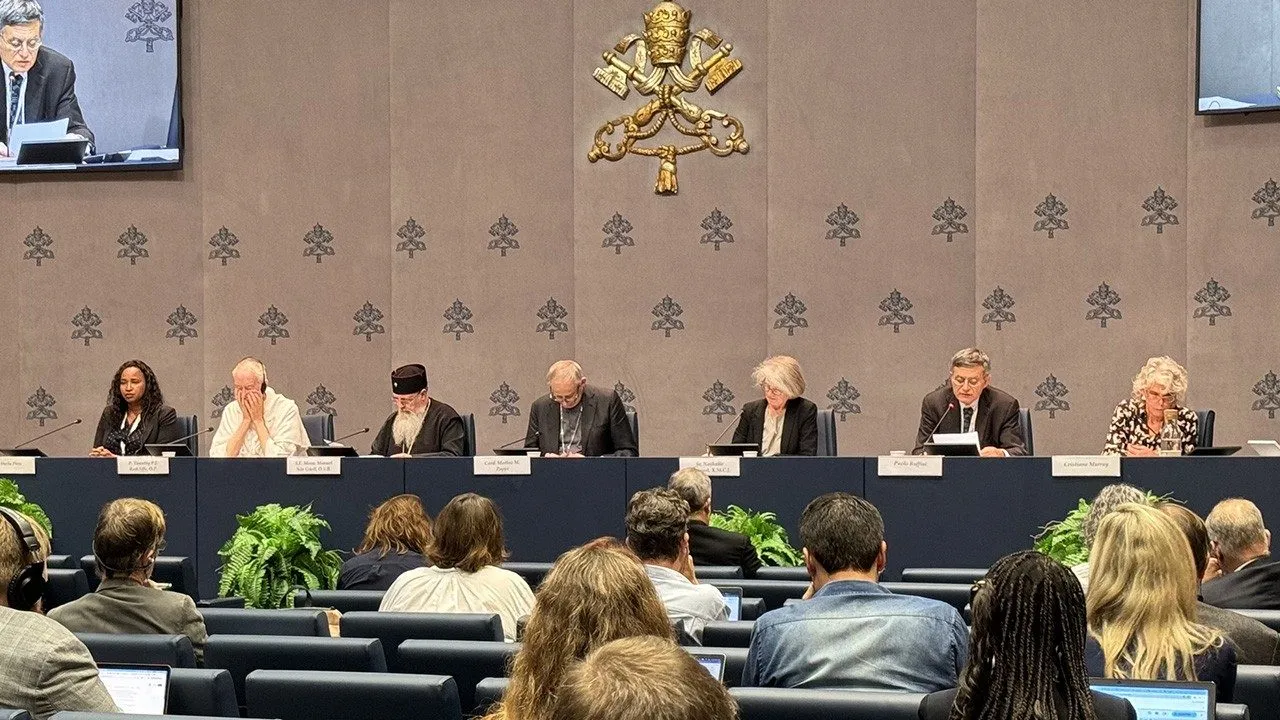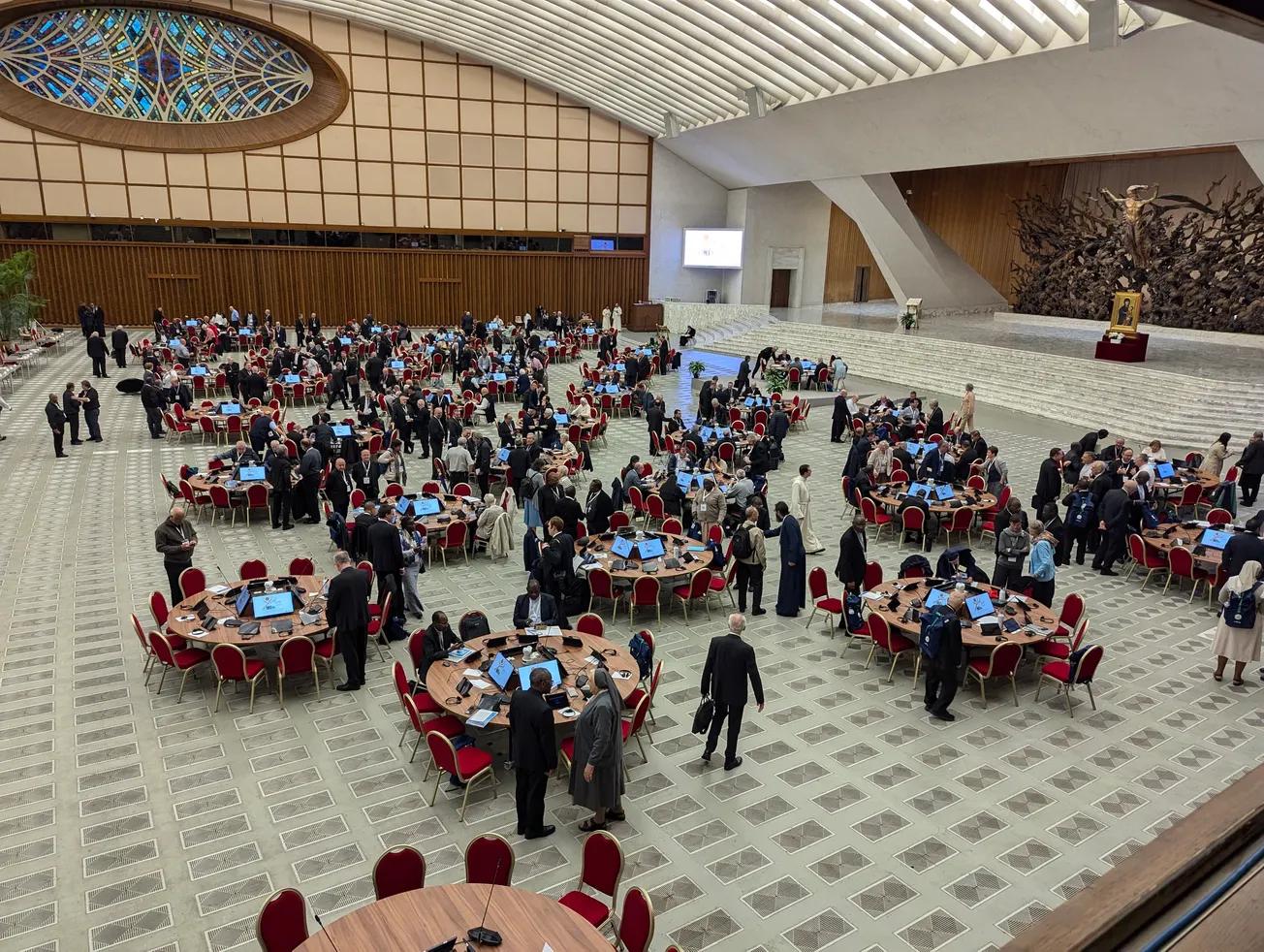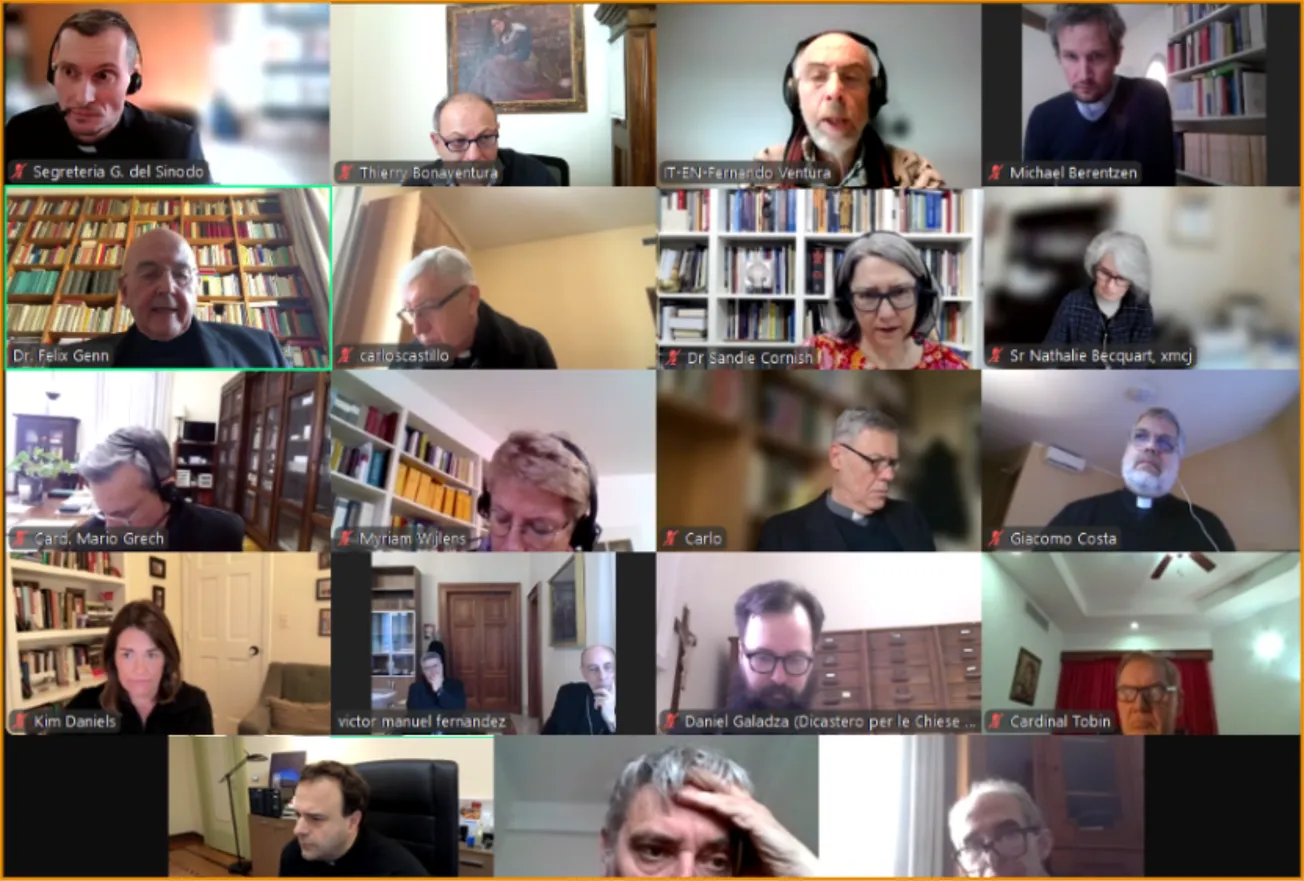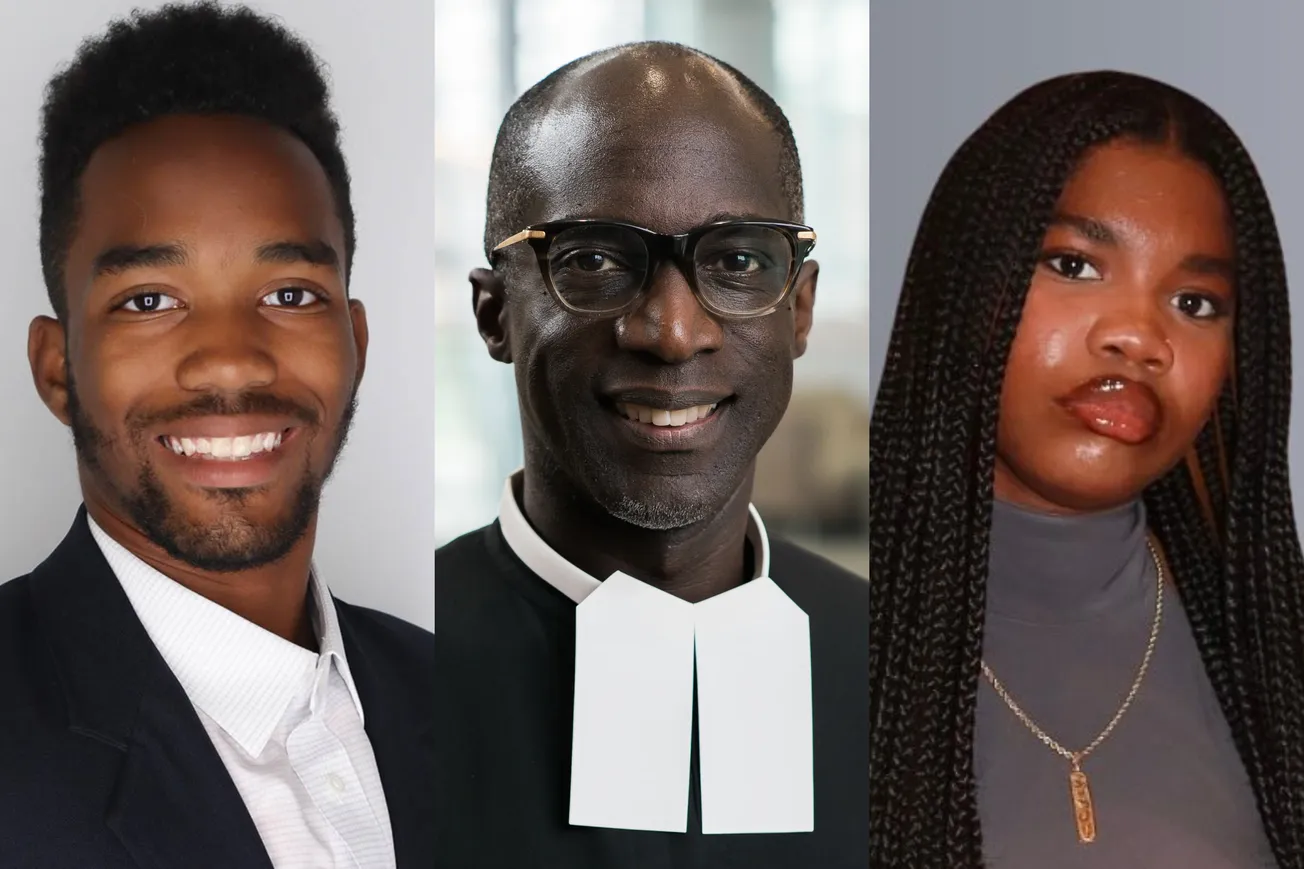VATICAN CITY — As the Synod on Synodality enters its final days, women's ordination has remained a persistent sticking point, with tensions reaching a fever pitch on the possibility of female permanent deacons.
It was announced in February by Pope Francis as one of several topics from earlier synod stages now outsourced to working groups meant to collaborate with the Vatican on reports due next summer. It has nevertheless come up repeatedly in synod discussions since delegates returned to Rome for a second and final set of monthlong meetings this month, following a first round last October.
Following requests from the voting body, synod leaders announced that the working groups would have open dialogues with the delegates, including one on “ministerial forms” that took place on Oct. 18. In a move that reportedly angered those present, Cardinal Víctor Manuel “Tucho” Fernández—who leads the Dicastery for the Doctrine of the Faith, which heads that particular working group—did not attend.
In a regular press conference on Monday, Dr. Paolo Ruffini, prefect of the Vatican’s Dicastery for Communications, read a statement Fernández delivered to the synod body this week, noting that it is actually his secretary, Fr Armando Matteo, who is heading working group #5. He, too, missed Friday's event, though due to a “medical intervention.”
Notably, in his statement Fernández did not budge from comments he made during an Oct. 2 working group presentation in the synod hall, where he said there is “no room” for a women’s diaconate to materialize in the Catholic Church.
“We know that the Holy Father has expressed that at this time, the question of the female diaconate is not mature and has asked that we not dwell on this possibility now,” he said Monday.
“The Holy Father is very concerned about the role of women in the Church and, even before the request of the Synod, he asked the Dicastery for the Doctrine of the Faith to explore the possibilities of a development without focusing on Holy Orders.”
At the same press briefing, synod undersecretary Sr Nathalie Becquart—one of the most senior female officials in the Catholic Church—noted that women’s leadership has reached unprecedented levels in the Church hierarchy at present, with multiple diocesan chancellors present as delegates to the Synod on Synodality. She also touted Catholic university presidents and CEOs of prominent Church organizations, naming Caritas (known in the U.S. as Catholic Charities) as a prominent example.
“I think it’s very important to help especially young girls and young women, to highlight that the Church is wide, with many different kinds of Church organizations. And there are already many, many ways to foster women’s leadership,” Becquart said, in response to a question—similar to Pope Francis’ recent CBS News interview stateside—from a reporter on how to communicate to his daughters the Church’s prohibition on women’s ordination.
Echoing the position of some Catholic commentators in the United States, another panelist, the English Dominican cardinal-elect Timothy Radcliffe, cautioned that viewing ordination as the pinnacle of Church life is a mistake.
“Among the highest positions in the Church are the Doctors of the Church—those who teach us—and many of them are women,” he said.
“I think it’s a very clericalist point to think that what really matters is who’s the priest. I didn't grow up with that point of view, and I think that’s a relatively modern one. So I think you have to live with your daughters… as people who see what is fundamental are the teachings and the sacraments.”
Bishop Manuel Nin Güell, a Benedictine prelate serving as Apostolic Exarch of Greece in the Byzantine Catholic Church, championed Eastern Christianity’s Desert Mothers, female monks—many of them African—who helped bolster the Christian faith in the early centuries of the Church. Among these are Sts. Mary of Egypt, Macrina the Younger, and Theodora of Alexandria.
As noted in comments from Congolese cardinal Fridolin Ambongo Besungu of Kinshasa during a press briefing on Tuesday, Eastern Christianity has a tradition of women deacons that also dates back to the early Church. Whether they were ordained in the sense understood by the Church today is an open question, though the matter was not raised at all by Güell on Monday.
“Perhaps we can avoid highlighting the role of women from a clerical perspective,” he said. “Reading the texts of the Mothers and Fathers of the Desert has really helped me a lot in connection with the position and role of women.”
In his statement, Cardinal Fernández noted that actionable steps on women’s ministry in the immediate future include instituting the ministry of catechist, which was created as a lay ministry by Pope Francis in 2022. It has met a middling reception from the world’s bishops, who are tasked with its implementation—or rejection. (The U.S. Conference of Catholic Bishops is scheduled to discuss the topic during its fall general assembly next month in Baltimore.)
The prefect also wrote of the ministry of acolyte, formerly a minor order of the Church, which has been open to women since 2021. It, too, has been instituted in only “a small percentage” of dioceses worldwide, he said.
Fernández noted that, given his absence at last week’s working group event, he will meet with synod delegates on Thursday, Oct. 24. There, he will take questions and share the names of members of the research team, which to date have not been fully revealed. Their work is scheduled to continue until June.
Separately, the Vatican’s most recent research commission specific to the possibility of women deacons, established by Pope Francis in 2020, is continuing to work and will publish its findings “at the right time,” Fernández said.
Meanwhile, synod delegates have in their possession a draft version of the final synod synthesis report, which will be amended and refined throughout the week by the voting body before a final vote on Saturday, Oct. 26. The synod will conclude with a closing Mass at St. Peter’s Basilica on Sunday.
Nate Tinner-Williams is co-founder and editor of Black Catholic Messenger.










